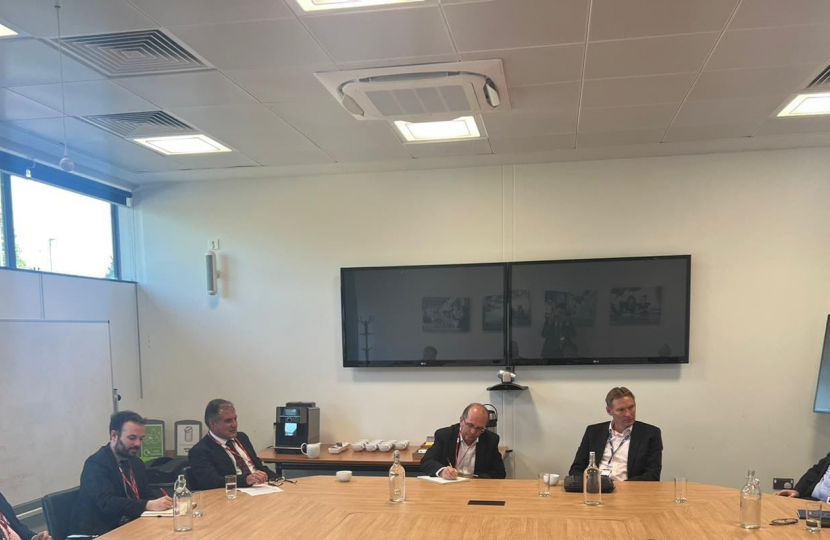
Today I had an interesting roundtable discussion at the National Composites Centre with MBDA, Leonardo, GKN, BAE Systems, Rolls Royce and Babcock. We discussed multiple issues relating to the work the NCC do to support the defence industry in our area and enhance the technology base in the North Bristol fringe and encouraging cross-fertilisation of technology. The NCC told me that they have rapidly expanding defence support capabilities. The NCC is part of the catapult network, designed to massively progress regional technology investment and promote high-value manufacturing in the UK economy with 1/3 of programmes funded by government and 2/3s by industry. Though the NCC also creates a platform for co-operation for companies reliant on advanced technology so that they can share vital technologies and reduce costs, helping to give British manufacturing a competitive advantage.
Composites developed by defence organisations at the National Composite Centre can be applied to armour, aircraft design such as the Airbus Wing of Tomorrow, and heat resistant materials which will improve performance and reliability on aircraft. The transition to composites from metalwork is already underway and the NCC and UK government are determined for UK manufacturing to be at the centre of this transition. I emphasised the importance of educational engagement by STEM field companies and the necessity to get young people engaged in science and engineering so that we can maintain excellence in manufacturing and produce the next generation of scientists and engineers.
I also picked up a number of issues from the defence manufacturers which I shall be taking back to government regarding regulatory issues which would reduce bureaucratic barriers to innovation and allow for greater cross-fertilisation of technology on various platforms.

